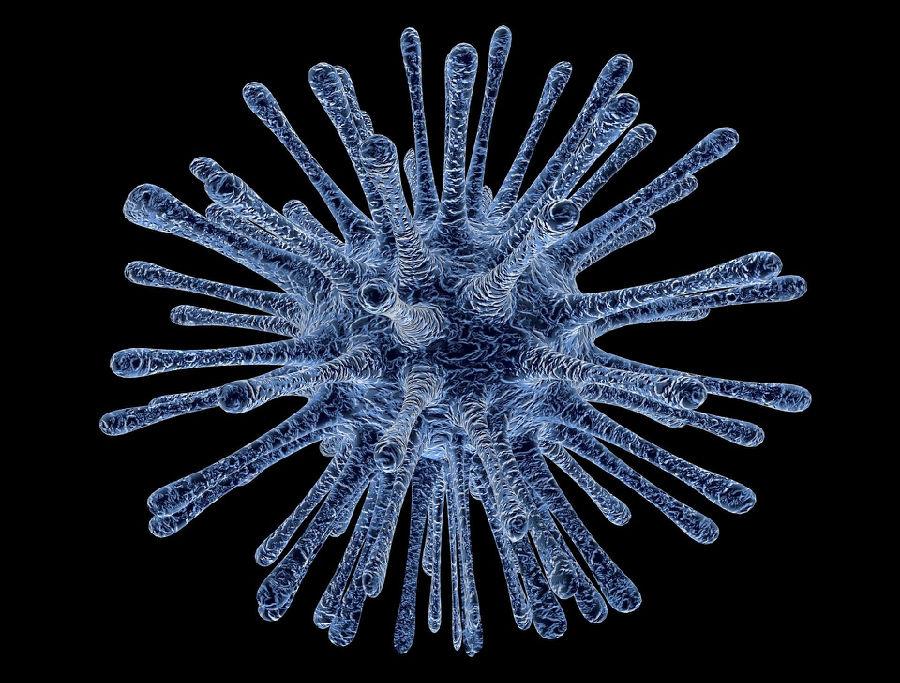

Contact: Manager Yang
Hotline: 950-4048-3964 (free)
Tel: 0510-85386636
Mobile: 18011518665
Shangmeng Technology Wuxi Co., Ltd.
Address: A1-602, Tianan Smart City, No. 228 Linghu Avenue, Xinwu District, Wuxi City, Jiangsu Province
A team of international interdisciplinary virologists and biochemists composed of FreieUniversität scientists developed low-cost and "cell-friendly" nanogels to prevent viral infections. Flexible nanogels mimic cell surface receptors, in which several viral families bind. The pathogen adheres to the nanogel molecules, so the likelihood of cell infection is significantly reduced. The researchers at the Institute are located at the Potsdam Institute of Biochemistry and Biology, the Indian Institute of Chemical Sciences and the Institute of Chemistry and Biochemistry and the Infectious Medicine Center, both at the University of Free. Interdisciplinary collaboration is funded by FreieUniversität's Collaborative Research Center 765 and the German Research Foundation (DFG). ACS Nano .

Medical research faces numerous challenges due to the large number of viruses. Most of the drugs currently available are only effective against a single virus or a few similar viruses because they block only specific viral proteins to disrupt the viral replication cycle in infected cells. In addition to the possible side effects of these substances, the emergence of resistant strains is also a serious medical hazard.
Despite the diversity of species and forms, many viruses still have some similarities. Typically, they interact multivalently with specific receptors and co-receptors on the cell surface, which are used for initial contact and diffusion into the interior of the cell. Therefore, the breakdown of complex mechanisms of cell-virus interactions is a key area of research for developing effective broad-spectrum antiviral agents.
Heparan sulfate (HS) proteoglycans form the entry ports for various viruses in the cell membrane. To date, various types of nanoparticles have been designed to prevent viruses from entering through HS molecules. They are based primarily on rigid materials such as gold and silver particles. As an alternative, little research has been done on softer and softer materials.
The German-Indian research team has now successfully developed nanogels with varying degrees of flexibility, mimicking cellular HS proteins. The active compound based on dendritic polyglycerol sulfate can effectively and permanently bind and protect the virus, thereby preventing infection. These nanogels have the advantage of being flexible to the surface of the virus. This increases their multivalent interaction with the viral particles and reduces the likelihood that the pathogen will be able to separate again. The researchers synthesized two sulfated nanogels that fight herpes and arterial viruses in humans and other animals. The resulting nanogel can achieve up to 90% inhibition. These substances remain active for a considerable period of time and also provide protection against viral particles. Release from infected cells Nanogels can be prepared at very low cost compared to the production of conventional antiviral drugs. Therefore, they can also be used more and more to treat animals. In addition, polymer gels are harmless and "cell-friendly" - unlike rigid, non-flexible materials - and can break down into smaller pieces and be excreted by the kidneys.
![]() Further exploration: Researchers identify structural changes in enveloped viruses before invading the host
Further exploration: Researchers identify structural changes in enveloped viruses before invading the host
More information: Pradip Dey et al. Multivalent flexible nanogels exhibit broad-spectrum antiviral activity by blocking viral entry by ACS Nano (2018) . DOI: 10.1021 / acsnano.8b01616
Address:Tianan Smart City A1-602, No. 228 Linghu Avenue, Xinwu District, Wuxi, Jiangsu, China TelePhone:0510-85386636 Fax:0510-85384339 E-mail:info@solmontech.com
KeyWord: